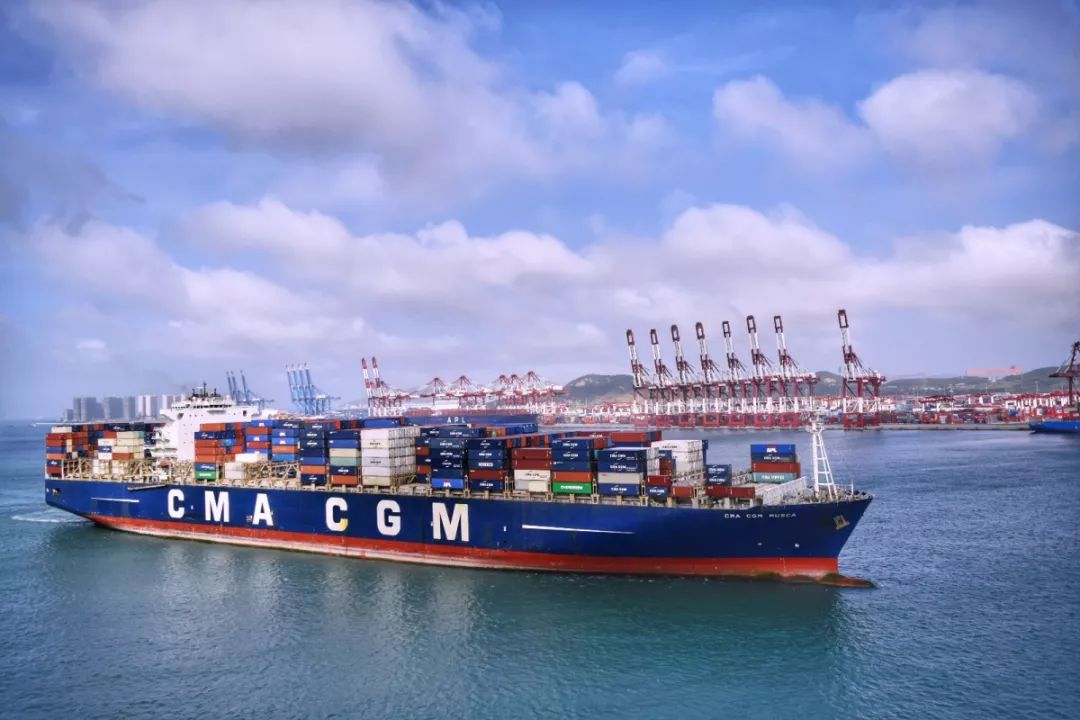
The Trump administration's policy to levy charges on Chinese-manufactured ships docking at U.S. ports will have a significant impact on the global shipping industry, particularly posing a severe blow to ZIM Shipping. Although the three major global container shipping companies, Maersk Line, cma, and Mediterranean Shipping Company, use the most Chinese-built vessels on U.S. routes, according to Alphaliner analysis, these companies have the flexibility to adjust their vessels to adapt to policy changes. Additionally, the French shipping giant, CMA CGM, has criticized the policy measures of the Trump administration and expressed concerns about the potential negative impacts it may bring.
According to the latest analysis by Alphaliner, in February 2025, a total of 1002 container ships docked at U.S. ports. The policy of the Trump administration will have a comprehensive impact on container shipping companies, especially affecting ZIM Shipping significantly. While Maersk Line, cma, and Mediterranean Shipping Company have the most Chinese-built vessels on U.S. routes, they may struggle to completely avoid negative impacts despite being able to adjust their vessels flexibly to respond to policy changes. Data shows that out of the 488 vessels docking at U.S. ports in February, 190 were Chinese-built, accounting for 19% of the total. In comparison, vessels built in South Korea constitute a higher proportion at 54.5%. However, in specific shipping companies, such as Israel's ZIM Shipping, most vessels on U.S. routes are Chinese-built.
The Trump administration's standard of charging $1.5 million per port call will increase operating costs for shipping companies. Mediterranean Shipping Company is currently the largest shipping company on these routes, while Maersk Line and cma also have a significant number of Chinese-built vessels. Although these companies have substantial fleet resources to ensure that vessels related to China do not sail to the U.S., Israel's ZIM Shipping does not have this option. Most of its Chinese-built vessels range in size from 5,315 to 7,800 TEU and are primarily long-term leased from shipowners like Seaspan or Navios. As ZIM Shipping deploys 48% of its fleet capacity on the Asia-North America route, options for redeployment are limited.
In contrast, while Mediterranean Shipping Company has a substantial number of Chinese-built vessels docking at U.S. ports, it can more easily transfer these vessels to other routes and replace them with vessels built in other countries. In February, Mediterranean Shipping Company had a total of 91 vessels docking at U.S. ports, with only 13 coming from Chinese shipyards. Faced with the Trump administration's policy, stakeholders such as shipping companies and shipping associations have submitted strong criticisms to the Office of the U.S. Trade Representative (USTR), highlighting that this policy will have a significant impact on the global shipping industry, increase operating costs, and ultimately be passed on to consumers.
The French container shipping giant, CMA CGM, and the World Shipping Council (WSC) have jointly voiced criticism of the proposed charges for Chinese-built ships by Trump. cma and WSC have expressed strong concerns about the proposal to levy high fees on Chinese-built or Chinese-ordered merchant ships docking at U.S. ports, believing that the proposal will have far-reaching impacts on the global shipping industry and U.S. consumers.
